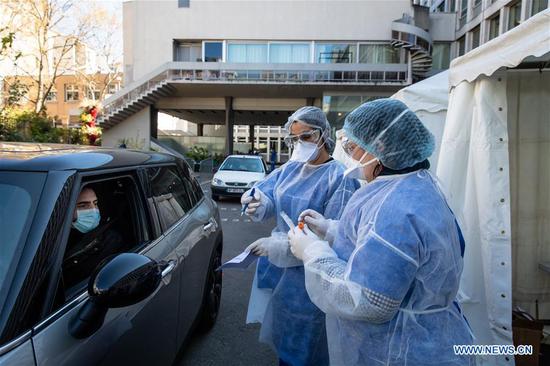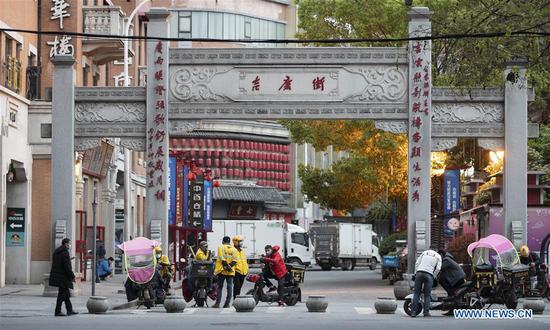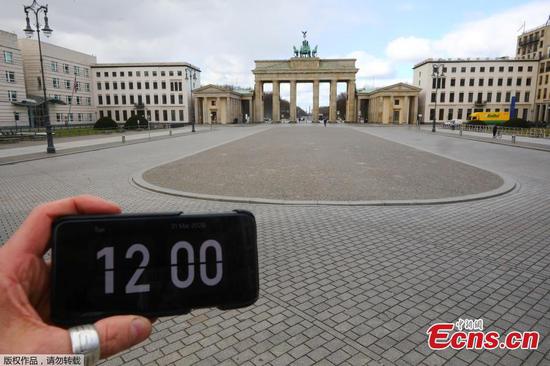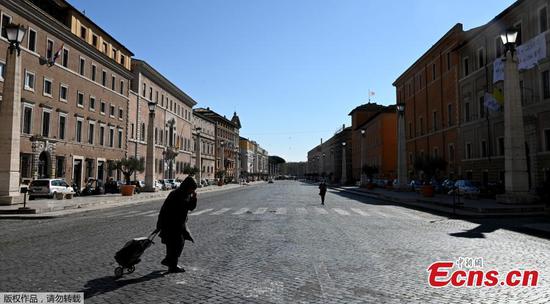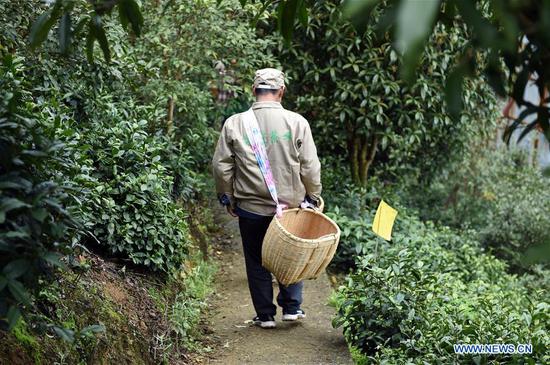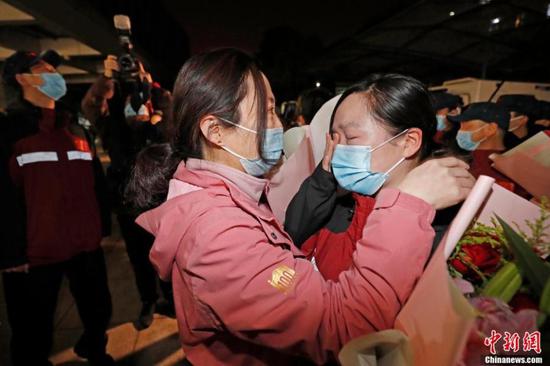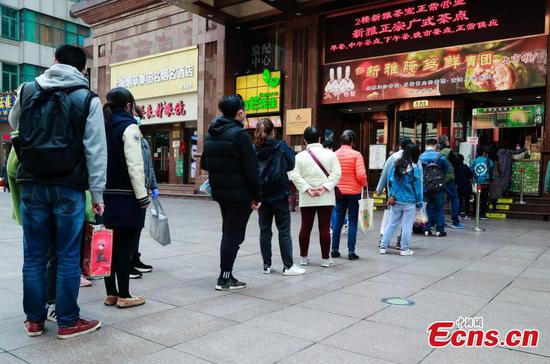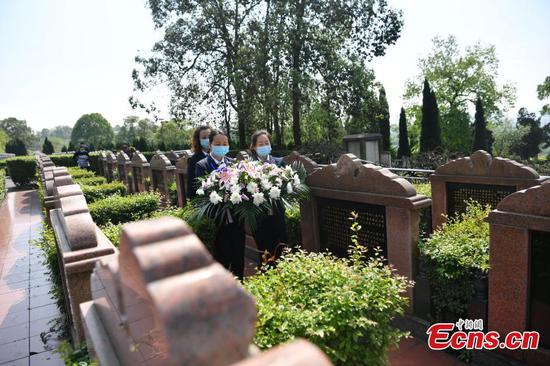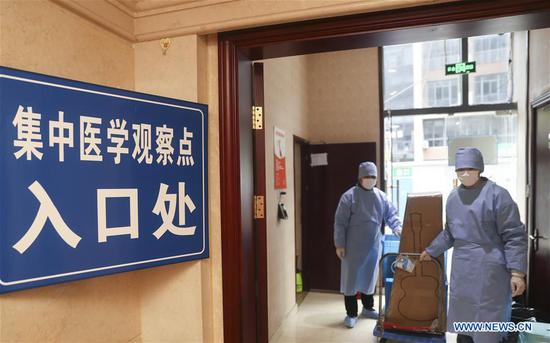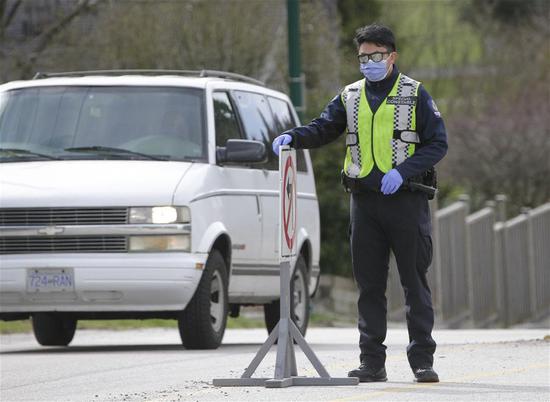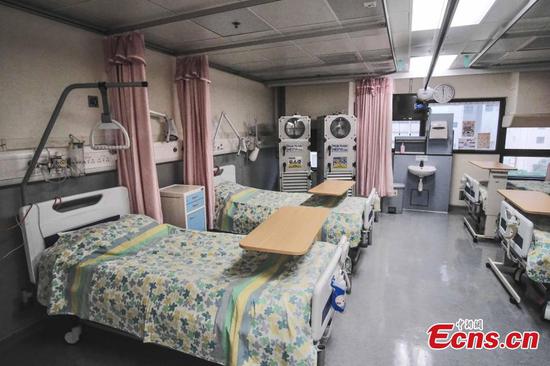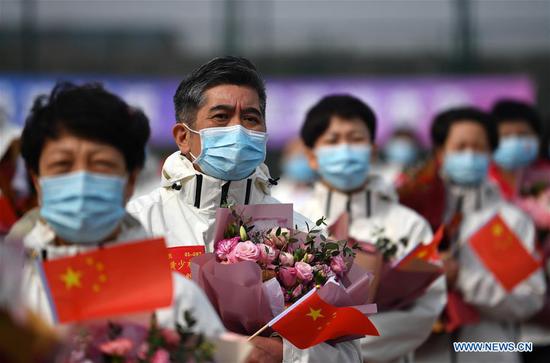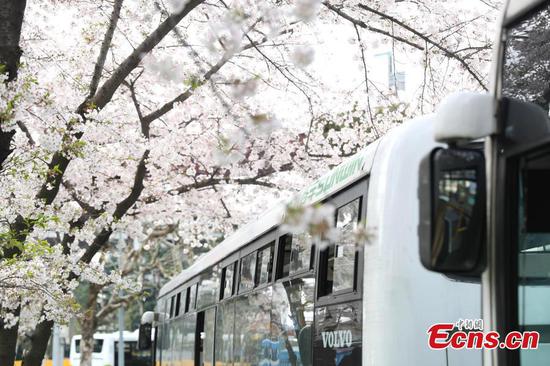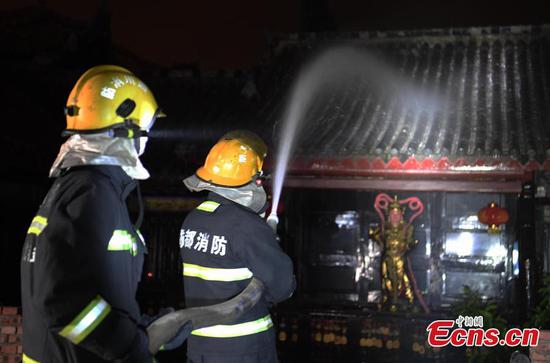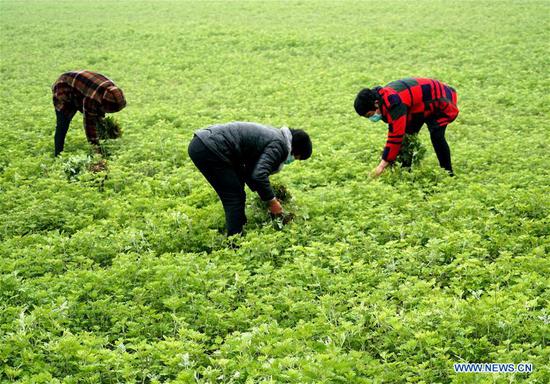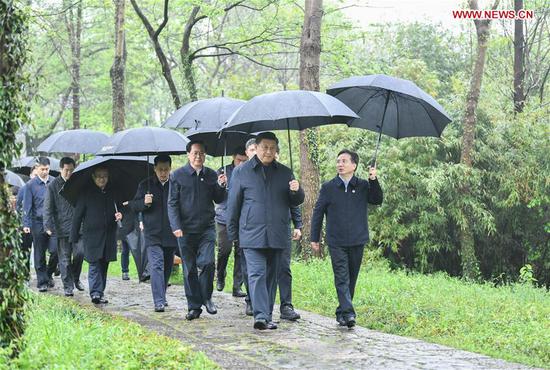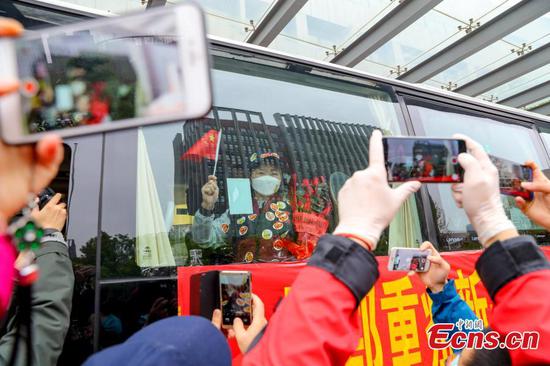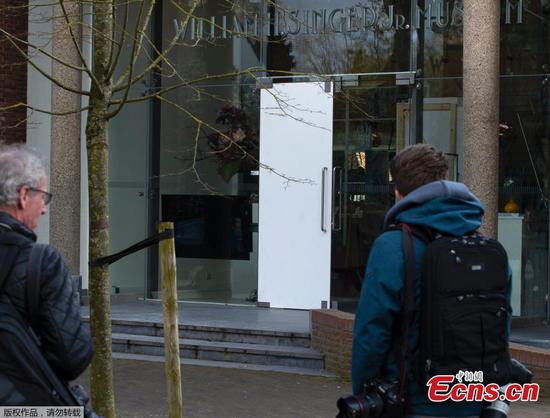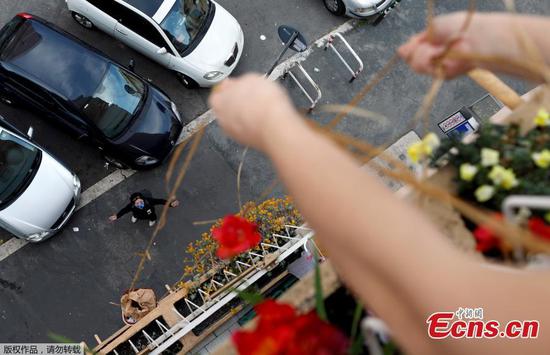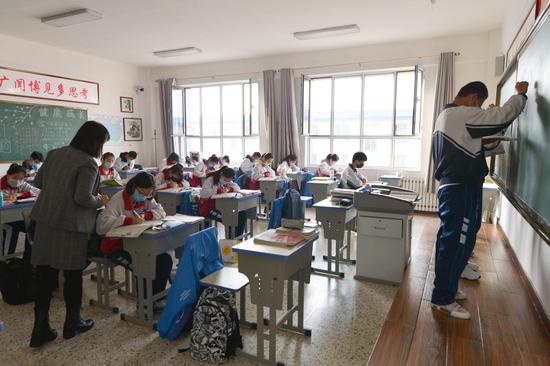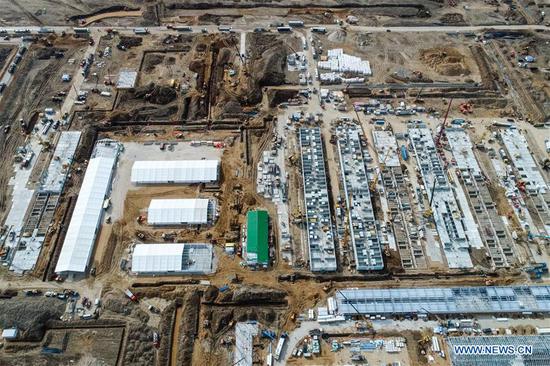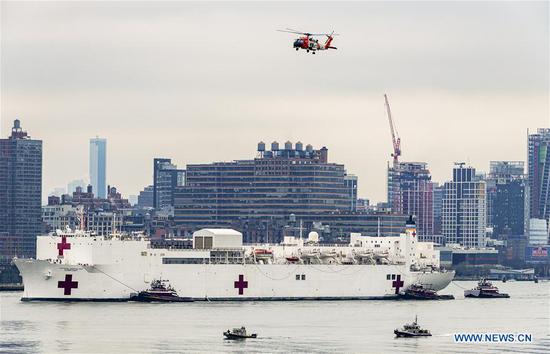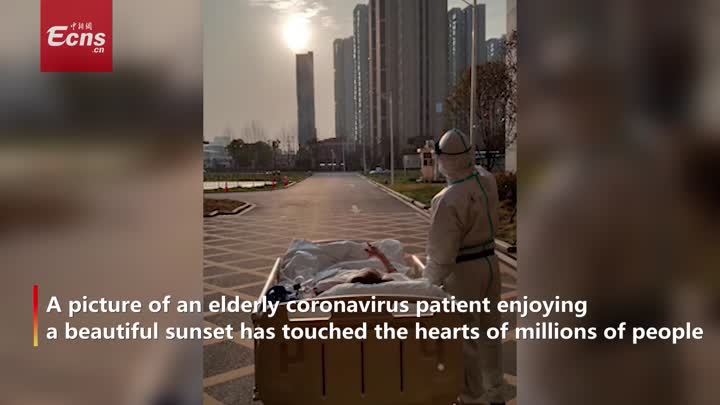
Staff members of the customs check the health declaration information of newly arrived inbound passengers in Chongqing, Southwest China, March 29, 2020. (Photo/Xinhua)
Group led by Li calls for bolstering entry checks, asymptomatic patient screening
A meeting chaired by Premier Li Keqiang on Thursday called for stronger measures to prevent importation of COVID-19 cases via land entry points and reducing people unnecessarily crossing borders while continuing with unrelenting epidemic containment efforts.
The leading group of the Communist Party of China Central Committee meeting on coping with novel coronavirus, led by Li, said China will step up checks on key transport routes in border areas and bolster international cooperation in containment to block infection.
Local authorities must fully assume their responsibilities, refine their containment plans and ensure early detection, reporting and isolation and treatment of patients, the group said in a statement.
The meeting stressed the need for reinforced attention toward asymptomatic patients through enforcement of screening, reporting, isolation and medical measures and management of their close contacts.
China will organize epidemiological research on asymptomatic patients in Wuhan, other parts of Hubei province and other areas to learn more about the infection rate of the virus and patients without symptoms and how infectious their cases are.
The results of the research will be made public, which will also pave the way for more scientific and targeted containment measures, the group said.
The meeting decided to enforce stricter standards on hospital discharges of COVID-19 patients. Recovered patients must be placed in isolation for medical observation and receive follow-up examinations. Those who test positive again must receive treatment in a timely manner.
It also called for use of scientific and standardized practices in road quarantine checks after roadblocks are lifted leading out of Hubei, saying that the passenger and cargo transport must be unimpeded.
Authorities in low-risk areas must promote the resumption of work and services in offices and public venues like malls, farmers markets and parks with full ventilation, sanitation, disinfection and health monitoring measures, the group said.
Large gatherings must be avoided, and the protection of key groups such as the elderly, students, pregnant women and mothers of newborns must be increased, it added.
The meeting also underlined the importance of increasing support for businesses to enable the resumption of work and to maintain the stability of supply chains.









